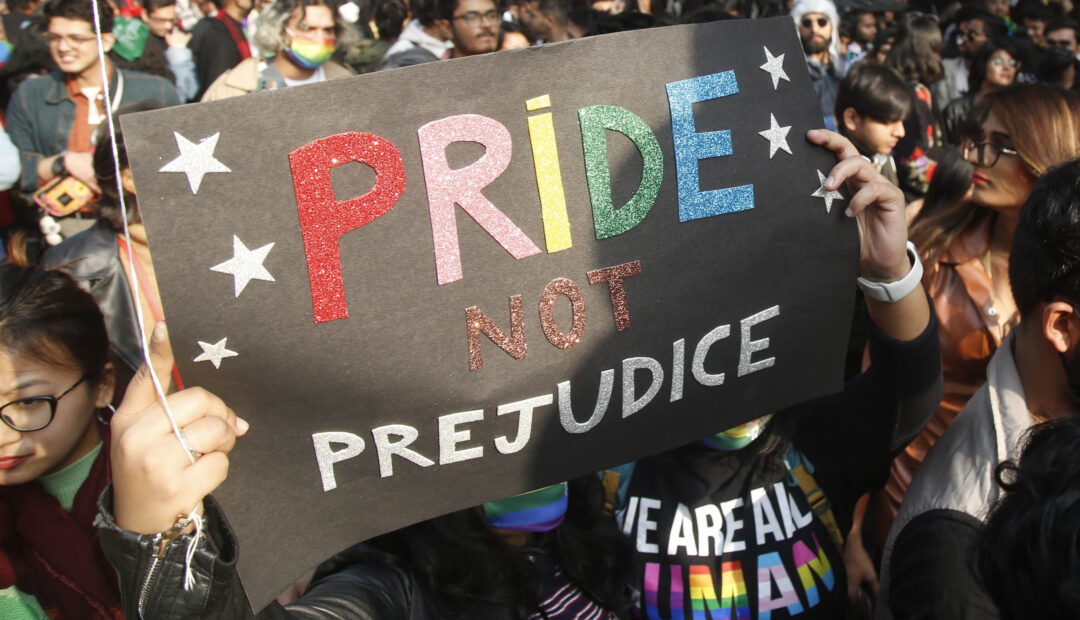India’s Supreme Court declined the legalization of same-sex marriages last week disappointing millions of LGBTQ+ Indian citizens.
A ruling from Chief Justice DY Chandrachud defended the decision stating: “this court can’t make law. It can only interpret it and give effect to it.” Chanrachud maintains that the decision to legalize same-sex marriage is up to Parliament, however he urged the federal government to end discrimination against queer Indians.
In spring of this year, India’s Supreme Court considered 21 petitions from LGBTQ+ activists fighting for legal recognition of their unions and official marital rights. LGBTQ+ couples remain unrecognized in India amd are also barred from having children by surrogate, or adopting children as a couple.
According to BBC, the petitions suggested solutions such as replacing the words “man” and “woman” with “spouse” in the Special Marriage Act, which allows marriage between people from different religions, castes and countries.
The Indian government has been known to oppose LGBTQ+ rights, criminalizing homosexuality in the Indian Penal Code under Section 377, a law which was inherited from British colonial rule. In 2009, the Delhi High Court ruled that the law was a violation of fundamental rights, but that decision to be overturned in 2012.
In 2014, top courts recognized transgender rights with legal recognition of a third gender, and in 2018 Section 377 was decriminalized once more. So the LGBTQ+ community has been led to be hopeful only to have their hopes dashed time and time again.
India’s Supreme Court is composed of a five-seat bench, and though Chandrachud explained the members of the court had varying degrees of support for the legalization same-sex marriage, they unanimously agreed that to grant LGBTQ+ people the right to marry is a legislative function.
Chandrachud said there were degrees of agreement and disagreement among the justices “on how far we have to go” on same-sex marriages, but the judges unanimously agreed that the court can’t grant LGBTQ+ people the right to marry because that is a legislative function.
Queer activists in India continue to fight for their basic rights and NGOs throughout the country continue to support and fight for LGBTQ+ Indians.


